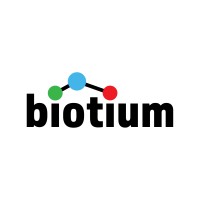P-Cadherin Monoclonal / CF568 / 12H6
Product Details
| Description | P-Cadherin Monoclonal Mouse Antibody (12H6) | |
|---|---|---|
| Conjugate | CF568 | |
| Clone | 12H6 | |
| Target Species | Human | |
| Applications | FC, IF, WB | |
| Supplier | Biotium | |
| Catalog # | Sign in to view product details, citations, and spectra | |
| Size | ||
| Price | ||
| Antigen | ||
| Host | ||
| Isotype |
About P-Cadherin
This gene encodes a classical cadherin of the cadherin superfamily. Alternative splicing results in multiple transcript variants, at least one of which encodes a preproprotein that is proteolytically processed to generate the mature glycoprotein. This calcium-dependent cell-cell adhesion protein is comprised of five extracellular cadherin repeats, a transmembrane region and a highly conserved cytoplasmic tail. This gene is located in a gene cluster in a region on the long arm of chromosome 16 that is involved in loss of heterozygosity events in breast and prostate cancer. In addition, aberrant expression of this protein is observed in cervical adenocarcinomas. Mutations in this gene are associated with hypotrichosis with juvenile macular dystrophy and ectodermal dysplasia, ectrodactyly, and macular dystrophy syndrome (EEMS). [provided by RefSeq, Nov 2015]
This gene encodes a classical cadherin of the cadherin superfamily. Alternative splicing results in multiple transcript variants, at least one of which encodes a preproprotein that is proteolytically processed to generate the mature glycoprotein. This calcium-dependent cell-cell adhesion protein is comprised of five extracellular cadherin repeats, a transmembrane region and a highly conserved cytoplasmic tail. This gene is located in a gene cluster in a region on the long arm of chromosome 16 that is involved in loss of heterozygosity events in breast and prostate cancer. In addition, aberrant expression of this protein is observed in cervical adenocarcinomas. Mutations in this gene are associated with hypotrichosis with juvenile macular dystrophy and ectodermal dysplasia, ectrodactyly, and macular dystrophy syndrome (EEMS). [provided by RefSeq, Nov 2015]
About CF568
CF®568 from Biotium is a fluorophore with an excitation peak at 562 nm and an emission peak at 583 nm. It can be useful in both fluorescence microscopy and flow cytometry. It is spectrally similar to Alexa Fluor™ 568 and ATTO 565. However, in flow cytometry, a superior alternative is R-PE. In microscopy, CF®568 is validated in super-resolution imaging by STORM, STED, Structured Illumination (SIM) and TIRF.
CF®568 from Biotium is a fluorophore with an excitation peak at 562 nm and an emission peak at 583 nm. It can be useful in both fluorescence microscopy and flow cytometry. It is spectrally similar to Alexa Fluor™ 568 and ATTO 565. However, in flow cytometry, a superior alternative is R-PE. In microscopy, CF®568 is validated in super-resolution imaging by STORM, STED, Structured Illumination (SIM) and TIRF.
Experiment Design Tools
Panel Builders
Looking to design a Microscopy or Flow Cytometry experiment?
Validation References
Reviews & Ratings
| Reviews |
|---|
Looking for more options?
600 P-Cadherin antibodies from over 26 suppliers available with over 57 conjugates.





